2.
GHANA
Restrictions to run to the end of May
Up to 8 May Ghana had conducted 160,501 corona virus
tests which resulted in 4,700 confirmed cases. But in just a
few days cases had risen to 5,408 according to the Ghana
Health website. The increase was attributed to the failure
of communities to follow guidelines.
There is no lockdown in Ghana but the presidential order
on public gatherings and social distancing has been
extended to the end of May. Borders remain closed until
the end of May.
The Ministry of Finance will formulate a recovery plan
which is expected to cover broad sectors of the economy
and include priority areas such as health, roads, education,
food and agriculture, manufacturing and security.
The 2020 budget projections have been impacted by the
pandemic and a financing gap of cedi 11.4 billion has been
projected because of falling oil revenues and import
duties. The economy was forecast to expand 6.8% in 2020
but the new projection is for a record low of 1.5%.
See:
https://issuu.com/business24online/docs/business24_epapermay-13-2020
Exports slide due to corona virus
Ghana exported a total of 35,508 cu.m of wood products
in the first two months of the year which earned euro
17.64 million a decline of over 30% in volume and value.
The comparable figures for 2019 are 53,171 cu.m valued
at euro 28.04 million according to the Timber Industry
Development Division (TIDD).
Mills in Ghana have orders for which approved export
documents have been obtained but they are unable to ship
as importers have been slow in providing shipping
instructions in order to delay shipments for as long as
possible in the hope that the situation in their markets will
improve.
Data from the TIDD is showing that, despite the
pandemic, February shipments held up surprisingly well.
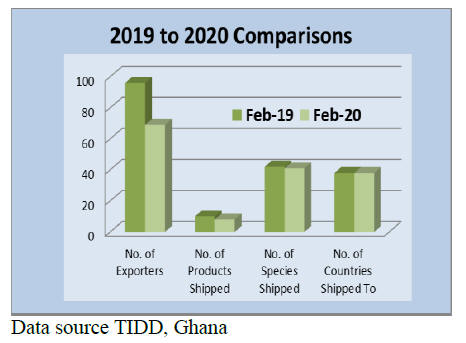
Decade export review
A study of Ghana’s 10-years annual timber and wood
product exports showed that the country recorded her
highest volume of 403,000 cu.m in 2010 with the lowest in
2012 (251,000 cu.m), according to data from the Timber
Industry Development Division (TIDD) of the Forestry
Commission (FC) .
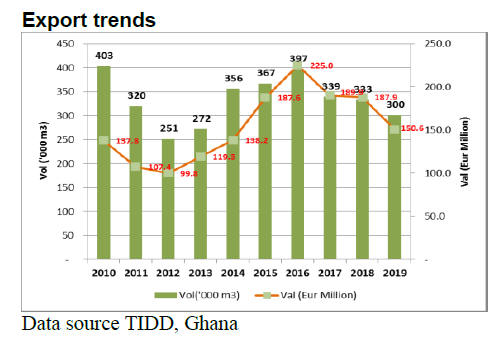
Export volumes started to pick up from 2013 after the
2012 dip and in 2016 rose to 397,000 cu.m, the second
highest export volume in the decade. The 2016 volume
earned the country Euro 225.0 million also the highest
revenue recorded during the period.
The data also showed that in 2017, the country’s wood
product exports declined and this continued to 2019 when
exports dropped to 300,000 cu.m and earnings were only
Euro 150.60 million.
Of the total export volume for the decade, air-dried
sawnwood (37.9%) and kiln-dried sawnwood (15.2%)
accounting for 53% of exports followed by plywood
(17.6%) exported to regional markets.
Export market performance 2010/19
According to data from the TIDD, Africa (47%) and
Europe (23%) were the leading market destinations for
Ghana’s wood products between 2010 and 2013 after
which things changed.
In 2014, for the first time, the exports to Asian markets
exceed those to neighbouring African countries and
Europe. In 2014 Asian markets accounted for 50% of
exports and this had risen to 75% in 2017. Asian markets
maintained their dominance until 2018 and 2019 when the
proportion going to Asia dropped (72% in 2018 and 68%
in 2019).
The US and the Middle East markets accounted for an
average 4% each throughout the 2010 to 2019 period.
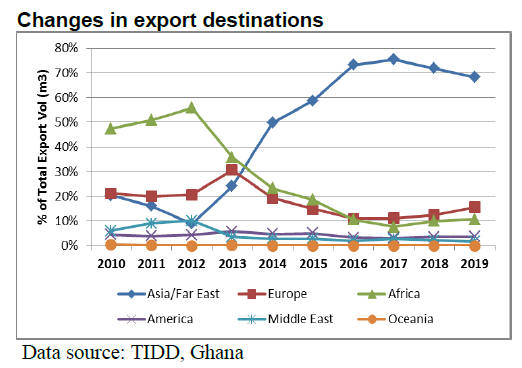
Analysts speculate that the impact of the pandemic on
global demand will drive exports down trends. However,
when the African Continental Free Trade Agreement
(AfCFTA) becomes operational, the intra-Africa trade
could greatly expand.
Cargo handling falls
The volume of cargo handled by the country’s two
seaports, Tema and Takoradi, is expected to decline by
some half a million metric tonnes in the first quarter of
2020 compared to the same period in 2019. The pandemic
continues to restrict global trading activities.
According to the CEO of the Ghana Chamber of Shipping,
Dr. Mbiah, this would be a 15% fall from the 3.5 million
metric tonnes recorded in the first quarter of 2019.
The Ghana Ports and Harbours Authourity (GPHA), which
had seen continuous growth in traffic throughput over the
past years, recently upgraded facilities at Tema and
Takoradi to attract more businesses in 2020.
Help for small businesses
The government will support around 200,000 SME
entreprises with a cedi 600 million stimulus package
through the National Board for Small Scale Industries
(NBSSI).
Task force intercepts illegal timber
On the basis of a tip, the Forestry Commission Illegal
Timber Task Force intercepted trucks loaded with illegal
timber in the Oti Region. The illegal operators took
advantage of the current crisis protocols which restricts the
movement of individuals but allowed the movement of
logs and wood products intended for overland export to
neighboring countries.
The Executive Director of the TIDD, Dr. Ben Nathan
Donkor who accompanied the task force, hinted of a new
strategy with more check-points on some selected routes
in the region to curb illegal activities. The intercepted
trucks have been impounded arrests made.
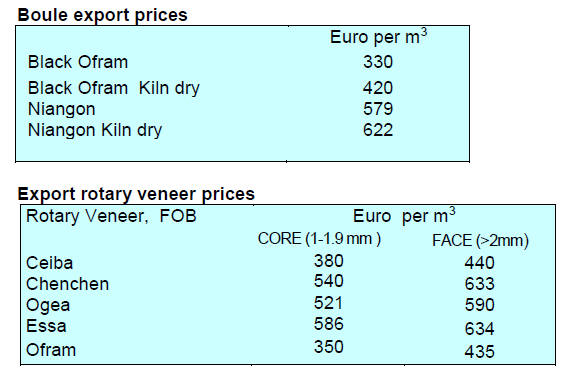
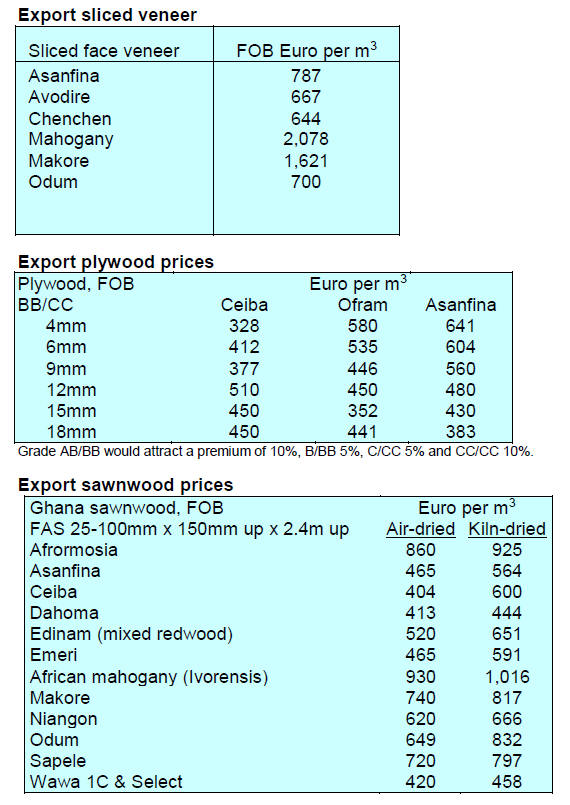
3.
MALAYSIA

